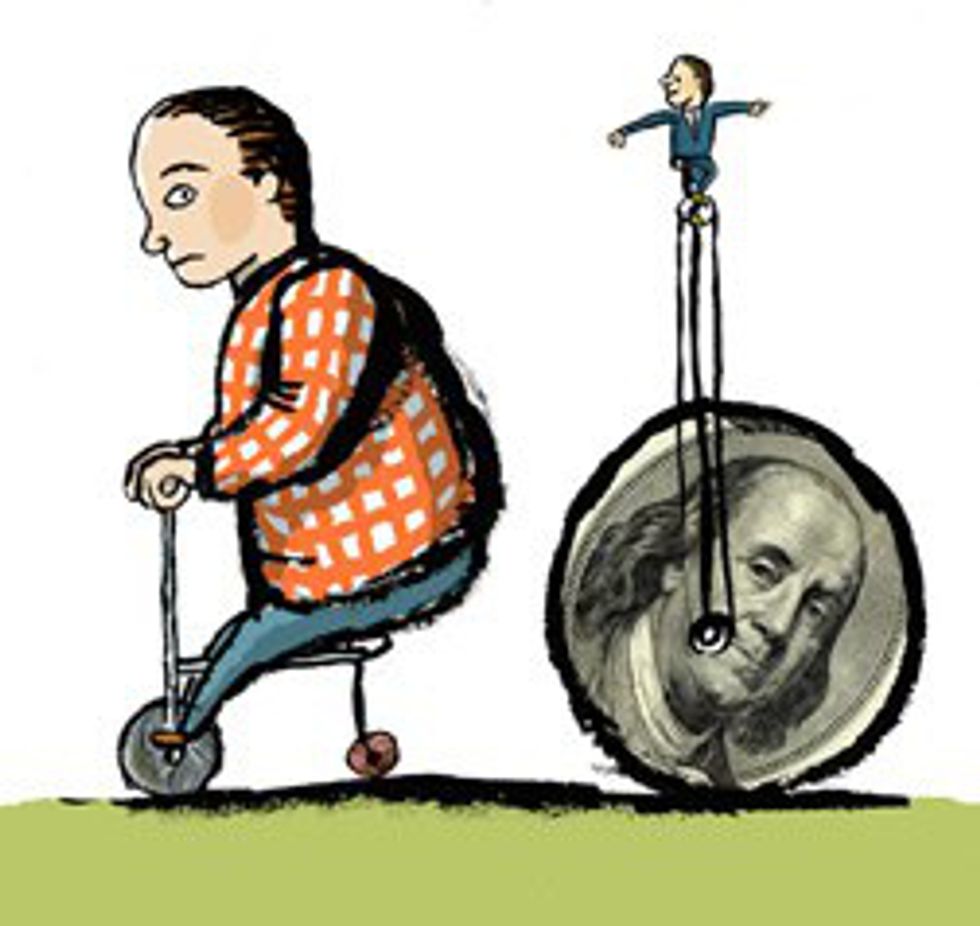What is a Middle Class? A rather simplistic definition according to Wikipedia is that "The middle class is a class of people in the middle of a social hierarchy." Often the Middle Class forms a buffer between the working and the wealthy upper classes and includes working professionals, businessmen and the intelligentsia among others. However, thanks to the ever-increasing chasm of economic disparity, the middle class itself becomes stratified and now we must bring our attention to the class of society that this article is targeting, the class of society we like to euphemistically call "The Upper Middle Class". This is no scholarly analysis of socio-economic data, this is simply a plea based on observation by a conscious citizen of India to her peers to check their accidental privilege.
In a country like India, which has a glaringly stratified society it becomes even more important for the privileged elite to, at the very least, become more aware of their privilege and keep a check on it during their day-to-day interactions. The most obvious advantages of this accidental privilege is access to opportunity. Almost none of the people reading this article would have attended a public, government school ("Kendriya Vidyalaya") in India. Would you send your children to one? Probably not if you can help it. Am I right? Ever wondered why? Simply because the quality of education you receive at a private school is infinitely higher than that at a 'KV'. This once again boils down to the much broader topic of economic disparity that plagues Indian society. Therefore, from the very beginning, you have had a head-start in life. Great! Your parents worked hard to give you the best of the very best and that is admirable. However, that does not entitle you to take that for granted. This was not something you achieved through merit, rather you got lucky thanks to "the accident of birth". A good education is followed by a "good" undergraduate degree. Yes, you got into college based on your own merit. However, do keep in mind how much of an advantage your privileged schooling gave you, as did your air-conditioned room in which you studied and very basic amenities such as access to nutritious food and water, electricity and the opportunity to undertake extra-curricular activities. This brings us to the second aspect of this privilege, which is an elevated quality of life. Once again, most Indians reading this have lived a life with access to cars, chauffeurs, household help and a host of other privileges that the Ordinary Joe probably does not have access to simply because they cannot afford such luxuries. This is not to guilt-trip anyone, rather it is to make a class of society aware of their privilege and if not use this position of privilege to help bridge the chasm between the rich and the poor, at least keep this privilege in check.
I have been observing a disturbing trend among people belonging to this socio-economic class, a class of society to which I too belong. This is a trend of entitlement, stemming from the fact that a majority of these individuals have grown up inside a protected bubble. A bubble wherein spending 700 rupees on a night out with friends is absolutely normal and is, in fact, the done thing without realizing that the per-day minimum wage for a 'skilled' worker in Delhi is Rs. 447 which means you spend approximately 150% of the amount someone earns in a day, in one night. A bubble, wherein commuting by the Delhi metro or DTC bus to work or college is simply one of the options available, not realizing that for most people, there is no option. Within this bubble, you drop a few thousand of your parents' rupees on makeup at your nearest Mac outlet and judge that girl from your history class for wearing Sarojini Nagar clothing to Hauz Khas Village on Friday night. This bubble is what is problematic. Not the fact that such a privileged portion of society exists, rather this protected, insular bubble within which it exists is what is a cause for worry. It is problematic because it perpetuates ignorance without accountability. As mentioned earlier, this is not aimed at berating a certain kind of lifestyle, rather this is a reminder as to what such a lifestyle entails.
No, in order to do good for society you do not have to become a philanthropist, nor am I asking you to become a sanyaasi (a Hindu saint who has renounced life). This is simply a plea to raise awareness about a disturbing trend among a privileged elite. While I am certain many of those who read this are aware of this privilege as a distant, discombobulated concept, it is the day-to-day consciousness of this privilege that truly counts towards a positive change. So if you are in this bubble, break out of it; if you have broken out of it, become more aware; if you are aware, become conscious; and if you are conscious remember to check your privilege every second of every day and without too much effort, you will inadvertently be contributing towards positive and meaningful socio-economic change in your country.












































